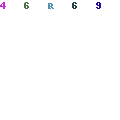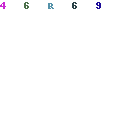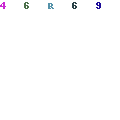Islam, terrorism and Osama bin Laden
 “I remember my junior year of high school… one day I stayed up till two in the morning studying … my father sees me and says, ‘Mohammed, this is a great jihad,” said Mohammad Khalil, University of Illinois Urbana-Champaign assistant professor of religion, visiting professor of law. “I assure you he was not saying ‘this is a great holy war.’”
“I remember my junior year of high school… one day I stayed up till two in the morning studying … my father sees me and says, ‘Mohammed, this is a great jihad,” said Mohammad Khalil, University of Illinois Urbana-Champaign assistant professor of religion, visiting professor of law. “I assure you he was not saying ‘this is a great holy war.’”
Speaking in the Morris University Center to an audience of about 60 students, faculty, staff and locals, Khalil was brought to SIUE as part of the Islam 101 series. The presentation was organized by the Middle East and Islamic Studies Initiatives at SIUE.
Khalil said jihad means ‘a struggle; an exertion of effort for a noble cause.’ Jihad may involve something violent, but far more frequently applies to doing the right thing under adversarial conditions–like continuing to practice charitable donation in hard economic times. In his presentation, which was followed by a lengthy and vigorous open discussion session with the audience, Khalil tried to define terms like Islam, jihad and fatwa as well as define the various viewpoints of minority and majority Muslims on a variety of topics including the 911 attacks, the so-called 911 mosque, Osama Bin Laden and teachings from the Qur’an.
“I’m really interested in the topic of violence in Islamic thought …. ‘What does Islam say about violence?’ and ‘What do we mean when we say Islam?’ and ‘What could Islam say?” Khalil said. “There’s an extent to which it is almost impossible not to trivialize certain things, for example, when discussing the Qur’an we clearly had to be brief in this (presentation) and not give it its full consideration of all the perspectives out there but I think, on the whole, the main points were preserved, which are that there are many interpretations of the Qur’an and the majority view is that what Bin Laden did was against Islamic law. And I think those are the two most important points and if I conveyed that I succeeded.”
Khalil said Muslims typically agree on the Qur’an, Islam’s holy book, but debate bodies of literature called ‘hadith,’ which are narrations concerning the words and deeds of the Islamic prophet Mohammad. Hadith are regarded by traditional Islamic schools of jurisprudence as important tools for understanding the Qur’an. Hadith were evaluated and gathered into large collections during the eighth and ninth centuries and are referred to in matters of Islamic law and history.
“Sunni’s don’t read the same hadith the Shiites do,” said Khalil. “They may agree on some of them, but they have different hadith collections and among these groups there is a debate about how reliable ‘this’ hadith collection is, or ‘that’ hadith collection is.”
One outcome of growing literacy rates in modern times, according to Khalil, is that in the modern context many people who are not scholars are exposed to the texts, and some of them want to freeze the texts in time in ways that Islamic scholars historically did not do.
“In my own study of how Muslim scholars deal with the salvation of non-Muslims, what I found to be fascinating … (is that) many of the most influential historical Muslim scholars are much more open minded than many of the most influential Muslims today,” he said, illustrating the point in response to a question from the audience about the 2005 controversy over 12 editorial cartoons published by the Jyllands-Posten newspaper in Denmark. Most of the cartoons depicted the Islamic prophet Mohammad. One in particular depicted a bomb in his head covering.
“With this recent cartoon controversy I think it is important again to see the role of politics,” he said. “People were attacking our U.S. Embassy, even though this was a Danish issue. I think many (Muslims) saw this as the straw that broke the camels back. Many saw this as a larger thing, that the West was ‘trying to control us.’ Because you know in our Supreme Court there is a … relief of Mohammad … he is presented as one of the law-givers, along with Moses, and nobody protests it.”
Historically, Khalil said, many Muslims were often hesitant about depicting the prophet for two reasons: one perspective is that Mohammad is a prophet and should be respected, and trying to depict him may do him injustice. The other perspective is that Mohammad is just a man; he is not a god.
Death threats–such as followed the publication of the cartoons–have not been historically supported in Islamic scholarship, according to the vast majority of scholars.
The ‘Islam 101’ program is made possible by funding from the SIUE Meridian Society. For more information contact Steve Tamari, assistant professor of Middle Eastern history at SIUE, (618) 650-3967, stamari@siue.edu.
Filed Under: Historical Studies • Religious Studies














